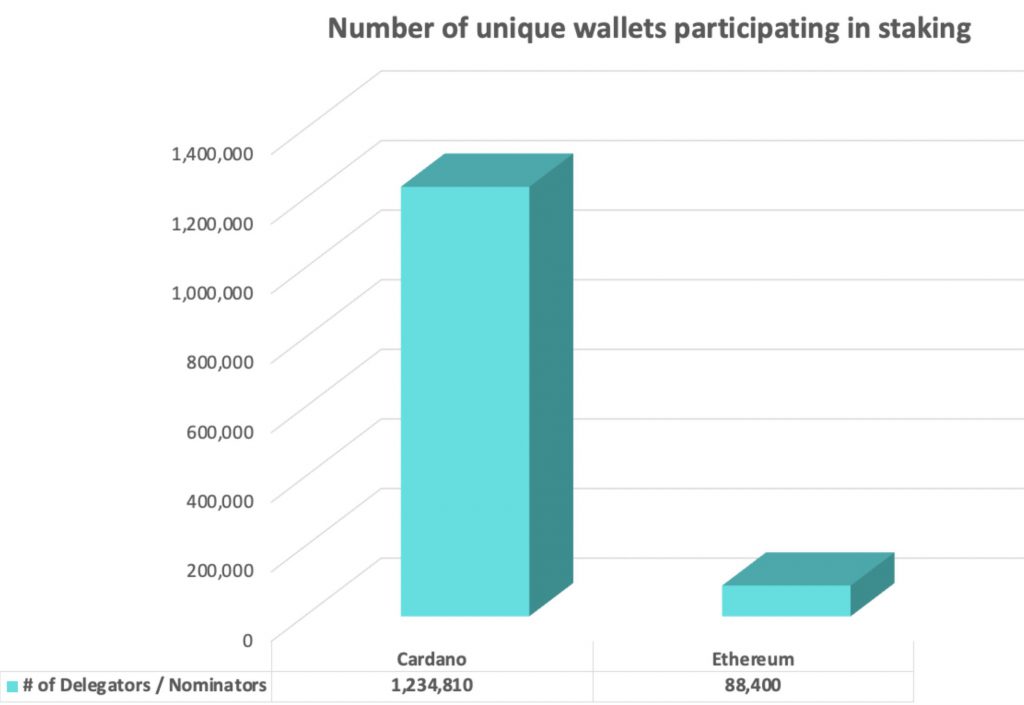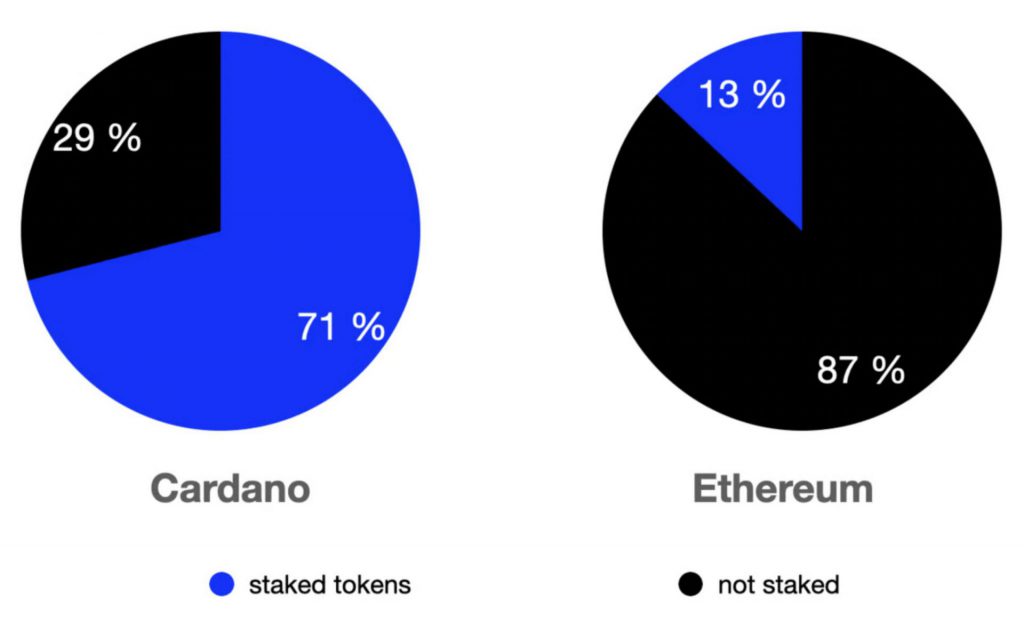Despite the ongoing bear market, the crypto industry continued to make progress on the developmental side. While most of these assets were plummeting, staking was viewed as a promising aspect of the industry. Even though Ethereum [ETH] is an ideal pick for many, Cardano has managed to turn quite a few heads.
It was recently brought to light that individual wallets that were participating in the staking network were more inclined towards Cardano as opposed to Ethereum. ADA showed 14x more participation than Ethereum.


This disparity between the network is mostly due to the benefits that the Cardano network offers. For instance, in ADA users have the ability to run their own validators. However, in Ethereum validators are required to entail a total of 32 ETH.
Cardano does not entail locking periods. This mean, users can re-stake or redeem the ADA at their convenience. In the Ethereum network, users depend on staking providers in order to earn yield.
Additionally, ADA had a far higher staking ratio than ETH. This signifies the level of staking participation for all tokens currently in circulation.


Not only do these factors make Cardano appear to be more decentralized but has also lured in other stakers. It was recently noted that Cardano has added a whopping 22,327 new staking addresses on average every month for the last 13 months.
At press time, total stake addresses in the ADA network were at 1,233,959.
Trust Wallet launches Cardano Staking
With increased benefits in staking Cardano, the demand is quite high. Addressing the same, Trust Wallet, a non-custodial crypto wallet opened its doors to ADA staking.
The latest feature will reportedly be available only for Android users for the time being. Users can avail staking service by merely selecting the “stake” button on their app.





